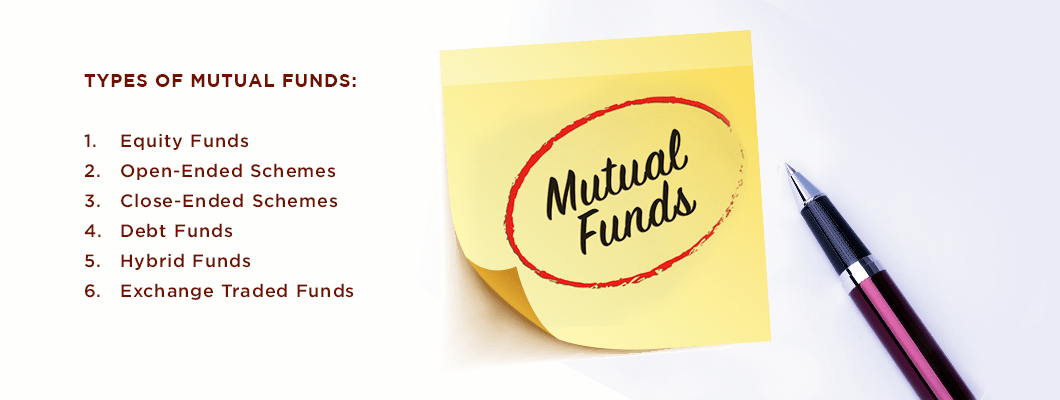
6 Types of Mutual Funds That Every Investor Must Know
Posted on Friday, August 19th, 2016 | By IndusInd Bank
Depending on one’s affinity for investments, investors can be divided into two categories – those who take risks and those who prefer to play it safe. Irrespective of the category you belong to, mutual funds can act as a preferred investment option. Mutual funds allow investors to invest in bonds, stocks and other securities, with each investor owning his/her share(s) of the holdings of the mutual fund. Before you decide to invest in mutual funds, carefully consider the following types of schemes and funds:
1. Equity Funds
The main objective behind choosing equity funds is to potentially generate high returns while tackling the inherent high risk. Equity funds are of different types, such as:
A· Index funds – involves equities of companies that form a part of the stock market index
B· Income funds – stocks with very high dividends
C· Sectoral funds – dependent on the sector of a company
D· Diversified funds – includes ELSS and RGESS
E· Value stocks, etc..
2. Open-Ended Schemes
This type of mutual fund is flexible in allowing investors to enter and exit without any end date. Investors can simply buy and redeem units on any business day at the prevailing values.
3. Close-Ended Schemes
Close-ended schemes come with a New Offer Fund (NOF) period after which new investments are not accepted. The mutual fund is conducted only for a specific time span after which it is closed and the returns are given to the investors. If an investor wants to exit before the redemption date, he can do so by selling the units through the stock exchange.
4. Debt Funds
Debt funds are low-risk-low-return mutual funds that invest in government securities, debentures, corporate bonds and other market instruments. For investors who look for more stable and stress-free source of returns, debt funds are the best choice. Debt funds can be categorized into different types based on the investment made. They include money market funds, fixed maturity funds, gilt funds and income funds.
5. Hybrid Funds
People who wish to invest in mutual funds that are more stable than equity funds, yet more rewarding than debt funds, should choose hybrid funds. Based on the balance drawn between equities and debts, hybrid funds can be divided into three types:
A· Balanced Funds involve 65% investment in equities and the rest in debts.
B· Monthly Income Plans involve only 25% to 30% in equities.
C· Asset Allocation Funds can involve up to 90% of equities based on the market conditions.
There is another type of hybrid fund that involves investing in a combination of equity, debt and gold. This involves increased expenses to have a smooth management of the diversified funds.
6. Exchange Traded Funds
Exchange traded funds, commonly referred to as ETFs, work similar to stock trading. They can be bought and sold only in the stock market and have a lower expense ratio than equity funds. ETFs based on gold (called Gold ETFs) are popular and help to safeguard the gold assets of the investor along with reassuring the quality of the metal.



 Offers
Offers Rates
Rates Debit Card Related
Debit Card Related Credit Card Related
Credit Card Related Manage Mandate(s)
Manage Mandate(s) Get Mini Statement
Get Mini Statement
 categories
categories Bloggers
Bloggers Blog collection
Blog collection Press Release
Press Release


